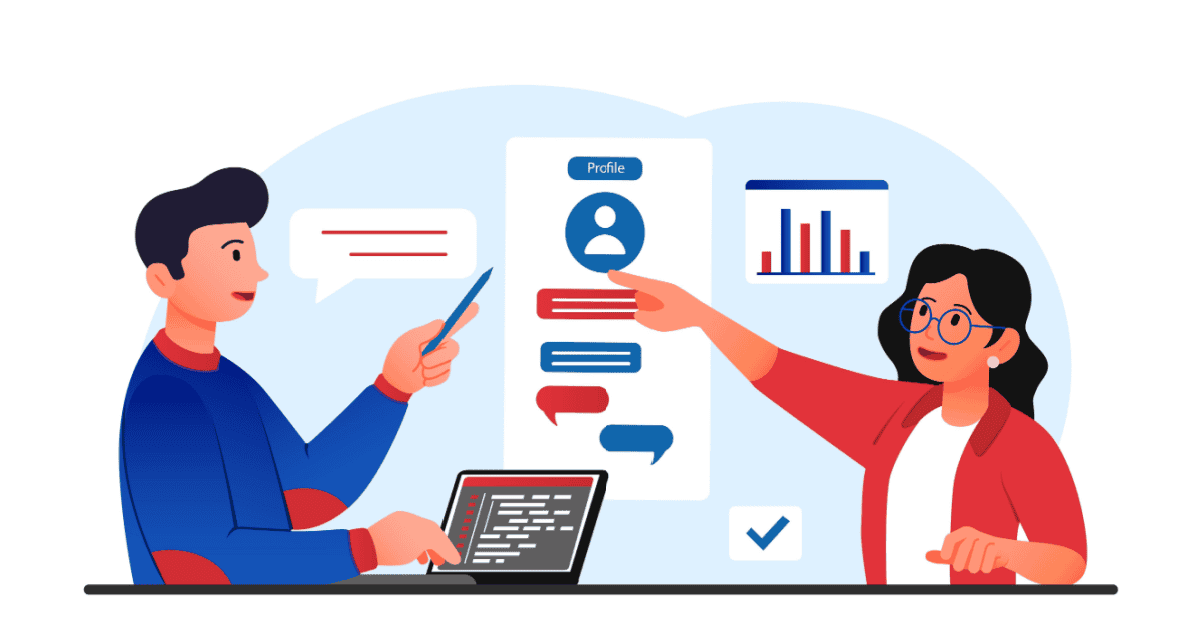
Podcast: Play in new window | Embed
Subscribe: Apple Podcasts | Spotify | Amazon Music | Pandora | iHeartRadio | Email | RSS
On this episode of the Sales Gravy Podcast, Jeb Blount (Virtual Selling) and Matthew Pollard (The Introverts Edge to Networking) take on networking for introverts.
One of the biggest myths about networking is that to be an effective networker you need to have the “gift-of-gab” and be an outgoing self-promoter. The truth is, it’s just the opposite. In fact, introverts often make the best networkers. You just need a plan, system, and authenticity.
On this paradigm-shifting podcast episode, you learn tips and tactics for leveraging your innate introvert superpowers to target prospects and influencers, engage in networking conversations, and turn networking into a repeatable system that helps you build your business and pipeline.
Join Jeb Blount’s Insider Group. Text “insider” to 1-706-397-4599 or HERE
Matthew: The Inspiration Behind The Introvert’s Edge to Networking
A lot of people don’t like networking and I think it’s because they don’t understand what networking really is. They go to networking events and they see these people that do transactional networking. They have these surface-level conversations with people and they walk out with all these business cards without having a real conversation with anyone.
The cards sit on their desk and they think, “If they call me, then I’ll work with them.” And of course, they never do. So they had this mindset that networking just doesn’t work. People need to be more strategic when they’re networking. Secondly, networking doesn’t just take place in a networking room.
People assume you have to be face to face because it doesn’t work virtually. And now people are realizing they can actually sell more if they stay at home. Networking is the same way. Most people don’t even know how to articulate the value of what they offer in three minutes when someone is politely listening.
What chance do they have when someone gives them half a second online?
Jeb: What to Do With That Stack of Business Cards
I was working with a group of CPAs who were going to networking events, but they weren’t really getting anything out of them. When I asked about their process, they said, “We talk to people, collect their business cards, and then we come back and wait for them to call us.”
I asked why they don’t call them, and they said, “Well, we do call them, but sometimes we’ll call them like three or four weeks later. We don’t want to bother them right after the networking event.” This is not hard. Why don’t you try calling them 24 hours after the networking event? Because they’re probably going to remember you right away. They won’t remember you in a month from now.
The advice I gave them was this: The next networking event you go to, when you get their business card, write down something about the person on the back of the business card. As I walk away, I go to my LinkedIn app on my phone and I send them a connection request.
The probability that they accept my request goes up exponentially. They also gave me a business card that usually has their cell phone number on it. So I send them a text message that says, “It was so nice meeting you, thank you so much for the conversation. I’ll give you a call tomorrow.”
And then I call them the next day. If you do that, appointments go up exponentially. We followed up with this group a couple of weeks later, and sure enough, it was working for them. Suddenly they were meeting people, calling them, and getting meetings.
What’s your take on starting conversations, following up, and making connections online?
Matthew: Follow-Up Doesn’t Have To Be Awkward
If I take a sales mindset, maybe with people on social media, after I walking out of the room means that we are starting to foster that relationship. I’ll connect with them on LinkedIn. Depending on your relationship, why not connect with them on Facebook? Check them out on Instagram.
One of the things I tell people is to look people up on LinkedIn beforehand who you know will be there. Instead of all these unfamiliar faces, you actually have a bunch of people you’ve already connected with before you go. It shouldn’t be a bunch of preplanned conversations, but tell them, “I look forward to speaking with you tomorrow.”
You should never stop a conversation without a plan for your next follow-up. The problem is when you introduce yourself incorrectly, it leads to this kind of awkward conversation where you say, “Oh, I’m in insurance.” They’ll say something like, “I’ve already got insurance. Thanks.” Now you have an awkward exchange before you have to ask them what they do and then the conversation’s over.
Change the Dynamic of Networking Conversations
My suggestion is to change the dynamic altogether. I had this guy come to me and he said, “I love selling insurance. But when I go to networking events and tell people I sell insurance, I watch their eyes scream. They’re like, ‘How do I get out of this conversation in less than three minutes? Can I go to the bathroom? Can I go to the bar?’”
So he explains to people what he does, but he already knows what they’re going to say. And then he feels obligated to ask them. Now he’s just wasted the money and the time of going. It’s stressful. If you’re commoditizing yourself and saying, “I fit in this category,” I already know from the moment I speak to you, I can disqualify you or say I don’t need it. That’s what most people do in the numbers game of transactional sales networks.
You want to introduce yourself differently, but to do that, I need to know why you actually care about this product. If you don’t care about the product or service that you’re selling and you don’t think it adds value, find something else. What I find is that most people gravitate to the products and services that they are connected with in some way, shape, or form.
Why Are You Passionate About What You Sell?
I asked him why he was passionate about selling insurance, and he said he likes to help people. I told him it needs to get deeper than that. Between a person that earns $50k a year versus somebody that earns $250k, which one do you care about helping most? He said he would pick the person who makes $250k because he can sell them more stuff.
I told him that’s not really where we want to go with this. What about a guy that hustles to get into a Harvard degree and got into a C-level executive role where he makes $250k, versus someone that started their own business out of nothing, hired on a bunch of people, and now they make $250k. Which one of those do you care about helping most?
And he said, “Obviously the small business owner. I just feel like they deserve more help because my grandfather got a business, owned a farm, and hired all these people. Then he got sick and ended up having to sell it. I just watched him wither away and die for 10 years in front of the TV in this little apartment, because that’s what he could afford.”
Story Matters
So I said, “Here’s what I want you to think about instead of going in and introducing yourself as an insurance salesperson. Why not introduce yourself as the ‘hustle lifeguard’? When people ask what that is, you then talk about your passion and mission, helping the hustlers of this world, the people who create something out of nothing. You’ll find that people will gravitate to you.”
What was funny is that the small business owners that heard that, they’re like, “I need that. You’re right. I’m not prioritizing, I don’t want to end up like your grandfather.” But people who aren’t small business owners almost never seem passionate about what they do, so they hear his story and they want to extend his passion into what they do. They’re like, “I’m not in a small business, but could I work with you too?”
It transformed everything. He went from an employee to starting his own business, and his business exploded.
Matthew: Get Them Talking First
One of the introvert’s strengths is our ability to be empathetic, ask great questions, and really listen to what the answers are. An extrovert often wants to talk about themselves. Extroverts can learn how to actively listen and empathize, but introverts believe they can’t learn to do those other behaviors, and the key isn’t about being more extroverted.
That’s a true recipe for failure and feeling inauthentic. You have to learn a system that channels your introverted strengths. The thing that I will tell you though, is absolutely like when you go and speak to someone for the first time, it’s about being interested, not interesting.
A lot of people get worried that they’ve got nothing to add. The person that’s networking wants to talk about themselves. So if you ask, “What brought you to this networking event?” something will come up. Or, “What’s going on in your life at the moment?” Maybe they’ll say, “Oh, I just got promoted.” Be genuinely excited for them.
Or if they say, “Oh, no, I always didn’t get here because something’s going on at the office,” ask them questions about it. Empathize with them. Offer assistance or advice. Somebody will say, “Oh my gosh, I can’t believe I haven’t even asked you what it is that you do!” And then you get permission to answer.
Networking In Everyday Situations
I like to travel economy sometimes, because going on a short flight, I find that a lot of people these days don’t want to spend the extra money on first-class for a short flight. So I’ll sit down and I’ll have a conversation where the first thing I’ll say is, “Are you going home, or are you heading out for a meeting?”
And a lot of times they’ll say, “Oh, I’m heading out to a meeting,” especially if it’s the morning. And we’ll then have a dialogue. I’ll joke about the fact that I won’t pay for first-class for short rides to create this dialogue. Now we’re having a dialogue about all the people that are in first class.
There’s a story in the book actually about one of the best relationships I created was literally at an airport. The flight had been delayed and I’m sitting in a restaurant waiting for my flight to get sorted. I heard everybody else talking about the conference that they’re going to next to me. And I was the speaker at the conference. So I turned around and said, “I’m hoping that we can get out today as well.” And that is all I needed. That is just building on something that you’re overhearing.
Tips for Great Conversation Starters
The night before an event, I’ll go out for a meal and generally I’ll sit at the bar and there’ll be another executive sitting at the bar because they don’t want to sit at a restaurant by themselves. They’re like, “You’re in business, too?” And then we’ll have a conversation. I’ll say, “What did you order? Is it any good?” That dialogue is all you need to strike up a conversation. And then I’ll say, “What are you here for?” It literally brings the same conversation back.
I’ll then invest in them about what they do, what brought them there, if they got some time to enjoy the city, some of the things that I saw earlier today, if I’d been to the city before, and eventually they’ll say, “So rude of me, I cannot believe I haven’t asked you what you do. What is it that you do?”
The thing is that you can create these serendipity moments everywhere. It’s unbelievable. I talk about this for a whole chapter. So many people tell me how lucky I am for running into all the right people. I have practiced and practiced so much that I always have conversations thought out.
Networking Happens Everywhere
Now, when I first started, it was a networking room and that’s it. But once I mastered the networking room, I started to look for conversation starters that I could use when I was at sports games, when I was at restaurants, or doing something in the city. Anytime I see an opportunity, I almost get upset with myself unless I practice one of my conversation starters.
This is for two reasons: One is that it’ll either be a great opportunity I could have missed out on, or secondly, maybe it leads to nothing, but I really learned something that didn’t go well that I can then practice later when I do run into that right connection. I’ll know exactly how to handle it.
Jeb: Practice Makes Perfect in Networking
One of the ways that I’ve helped myself create these conversation starters is by talking to people when I’m waiting in line for fast food. I’ve always practiced this and it doesn’t make me feel even a little bit nervous. I’m a big fan of fast food, so I’m always getting the burger.
I’m waiting in line and there are people in line and they have logo shirts on. I’ll go, “Hey, I couldn’t help but notice that you work for this company. What do you do there?” And people love to talk about that. I can always start asking questions and it just helps me open up a dialogue or find out about the company.
And I learn a lot about the marketplace that way. I don’t always create the same sort of these reciprocal relationships that last a long time, but I learn things I didn’t know. They’re usually pretty good conversations and I never feel even the least bit of nervousness about that at all.
You Have Nothing to Lose By Trying
I think that you have to be intentional about it. You have to decide you’re going to do it. And then, you have to practice. Practicing has been the way that I’ve gotten myself better at those types of conversations. I have conversations with strangers that have zero impact on my life. I’m probably gonna have zero impact on their life.
So there’s nothing to lose, nothing to gain. And my thought is that if I asked them about their day, let them talk, and I don’t say anything, all I did was make their day brighter and they walked away thinking, “Wow, that was a really nice person.”
I get practice by getting out of my own head and having those easy conversations.
About the author
Jeb Blount
Jeb Blount is one of the most sought-after and transformative speakers in the world…
Get FREE Sales Training Delivered to Your Inbox
Join more than 360,000 professionals who get our weekly newsletter.
Related Articles

Learn Online
Self-paced courses from the
world's top sales experts

Virtual Training
Live, interactive instruction in small
groups with master trainers

Coaching
One-to-one personalized coaching
focused on your unique situation






